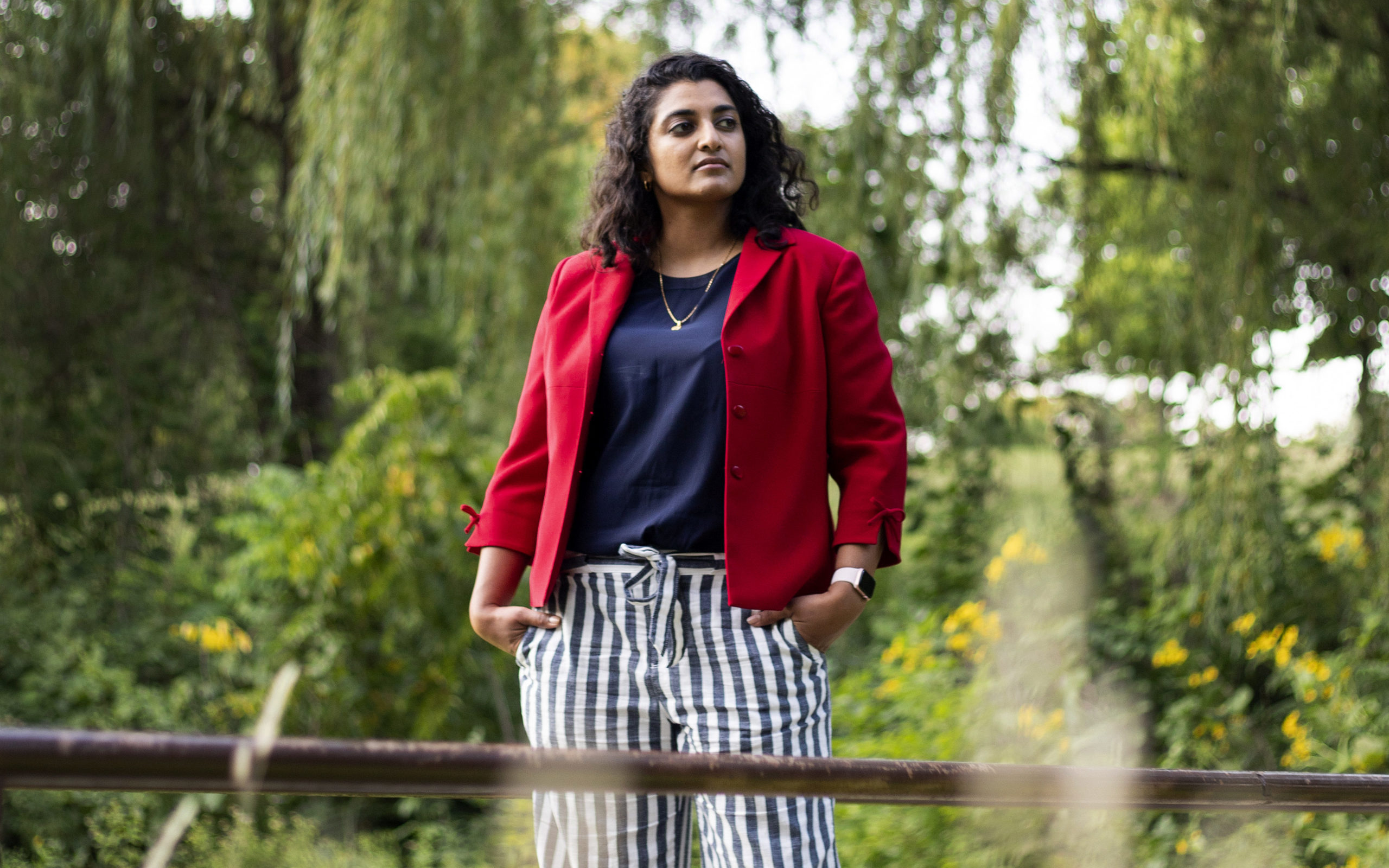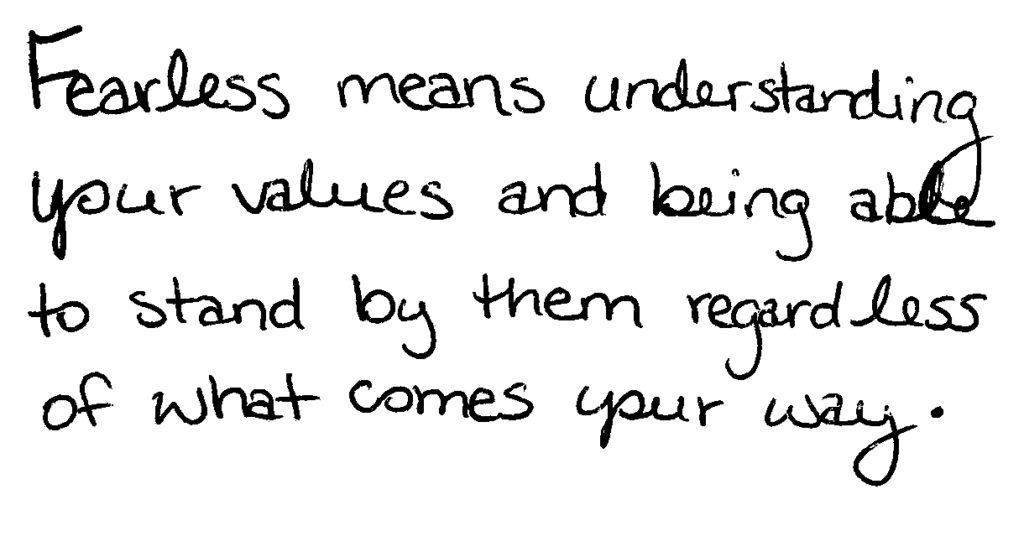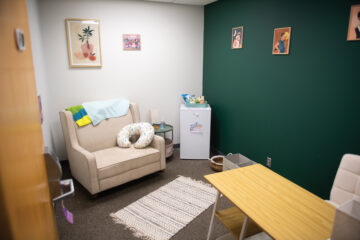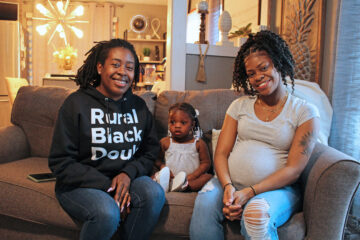
Megan Srinivas is an infectious disease physician and public health researcher based in Fort Dodge and is on the faculty at the University of North Carolina. Her research is focused on health inequities that are affecting rural areas both domestically and internationally. Additionally as a member of the council for medical service and a national delegate for the American Medical Association, Srinivas is currently working with COVID-19 policy.
When she’s not crafting guidelines for how medical professionals should care for COVID-19 patients, or having meetings with the World Health Organization or the Infectious Diseases Society of America, Srinivas frequently sits on virtual panels, posts on social media and writes op-eds to educate people about COVID-19.
I am very vociferous about what needs to be done scientifically and from the stance of public health.
There’s so much mixed messaging out there about COVID-19. Public health and science have become very politicized even though they should be objective at a time like this. Unfortunately there are certain people who don’t want to hear messages about wearing a mask or other scientific-based recommendations.
I have a bank of knowledge and I’m a part of an institution [University of North Carolina] that has received a lot of COVID-19 grants. I’m on a lot of phone calls. So if I’m doing what I do for the rest of the world, why wouldn’t I do it for my own local area? Why not [share information] to my own home state? Even though it’s something that I’m doing on the side, to me it’s very important because this is where I live, these are the people I care about. This is my community.
It’s difficult, especially when you have local leaders who don’t want to defy what’s being done at the state or national levels and just want to follow along that party line. I want to make sure I come across as nonpartisan. Everything I post is not information that I came up with, it’s not my opinion. I’m trying to make scientific data approachable. I try to explain complicated concepts in terms that anybody can understand, and why they should do what they say.

Unfortunately I’ve gotten a lot of messages, usually through social media, that have been trying to dissuade me from doing what I’m doing, which I just ignore and shake off. There are people who lie about my credentials. A local politician is going around claiming that I’m not affiliated with the American Medical Association at all, to try to get people to not believe what I’m saying. They’ll say that I don’t know anything about COVID-19, just trying to defame me based on clearly reproducible data that’s out there.
People will stoop to unexpected lows when they don’t want to believe something. They’ll want to scapegoat it. Instead of looking to the truth of the matter and figuring out how they can fix it, when messages are coming from leaders that are lies to begin with, it’s easier to buy that lie and try to find ways to undermine those who aren’t lying.
The one moment I took it to reality was when somebody obtained my father’s unlisted cellphone number and spoofed him, making it look like it was a phone call coming from my phone. Essentially they insinuated that they had harmed me and were on the way to their house to harm them. My parents live in Ames, which is 70 miles from here.
I was in the middle of an AMA meeting, this was a Sunday evening in the middle of July, and we were discussing the launch of the upcoming Mask Up initiative. My parents called me frantically a few times and they sent me a text asking if I was OK. I told my colleagues that I had to step out of the meeting for a minute, and I called them.
They made me FaceTime them to make sure I was actually OK. They said, “We just wanted to make sure you’re fine, keep doing what you’re doing, we’ll talk to you later.” I was very baffled, so I called them back later and they told me the whole story.
They did file a report with the Ames police. The office of T-Mobile’s president called me immediately and got their cybersecurity forces on it, trying to figure out if they could get any information. Unfortunately we’re probably never going to find out who this particular call was from, but at least they were able to reassure us that we didn’t need to change our numbers and that our other information was safe.
To their testament — and I guess this is where I get my confidence in what I do — they said, “Don’t stop doing what you’re doing; if anything, just keep doing it more. People need to hear what you’re saying, and there will always be naysayers out there. You can’t let them stop you.”
It was the only time I took pause because it went beyond my own safety and went to my parents. But at the same time, despite all of those things happening, if I can save even one life by relaying the messages I am, it’s worth it.
There are a lot of supporters. There are a lot of people who have reached out to me and told me that if it weren’t for what I was doing, they would have no idea what to do. There was one person who reached out to me and told me that he thinks my posts directly saved his father’s life. His father is a pastor in northwest Iowa and has diabetes and a few other illnesses. The church’s council wanted to reopen the church. I did a Des Moines Area Religious Council panel, and a week later the archdiocese wrote a letter to the governor. My comments were quoted as one of the reasons why it was not safe to reopen churches. He said because of that, his father’s church remained closed and that he really thought that I helped save his life. They found out that a few of his parishioners tested positive and he would have become positive if he had come in contact with them.
I strongly believe in the work that I’m doing. It’s the whole reason I entered medicine: that if I’m not going to speak the truth about this field that I’ve spent my entire lifetime studying, if I’m not going to use that knowledge and effort to actually save lives, then what am I doing?
I am afraid that I could have done something to help stop a bad decision that led to increased mortality or morbidity, or that I could have really made a difference in what somebody did or saved their life, and I didn’t. That I didn’t take the time or chance to act when I could have.
That’s why I went into medicine to begin with. I saw a huge gap in the allocation of resources and the people who were making the decisions and the ones on the ground who actually understood the subject matter. I always wanted to help ameliorate that gap. It initially started in the global health setting, but then I started to realize how important that was in the U.S. and in my own home state. That’s why I’ve always had a public health focus.
Being willing to be unpopular to ensure that I do what is right is what makes me fearless. Being willing to go against the tide and stand up against misinformation to ensure that everybody is armed with the same information and ability to protect themselves.
What does it mean to be fearless?
It means understanding your values and being able to stand by them regardless of what comes your way. My values revolve around what I do for a living. I went into medicine because to me, the ultimate value is making sure that you strive to make the world a better place. I want to do that in every aspect of my life.
What does being fearless look like?
It can look like a 5-year-old girl standing up to her friends on the playground because they might be teasing somebody. It can look like a 90-year-old senior citizen who posts on Facebook something unpopular because she’s more progressive than her contemporaries. It looks like anybody who’s willing to take a stand for what they believe in.
What does being fearless feel like?
It feels right in the sense that you can go to bed at night knowing that you’re happy with your choices.
How do you become fearless?
I had amazing role models in my parents and my brother who constantly modeled for me what it meant to stand up for their values, what it meant to stand up for doing the right thing at all times regardless of the cost. Just being empathetic to another person’s condition, not knowing what they might be going through. Watching them every day laid the path for me as to what I should look at in the world and what I should value in the world. I had amazing teachers who believed in me. I had a great support system who enabled me to realize my identity and what I could do to fulfill those goals in the future.
Draw the word fearless.
I would draw my mother. She is an amazing woman, and I know everybody says that about their mothers. She is the most caring, empathetic person who’s also extremely vociferous and optimistic and looking to see what can be done to improve the world. She showed me what it meant to be a strong woman. To stand up against the naysayers in the world. To face anything head-on. She constantly believed in me.


